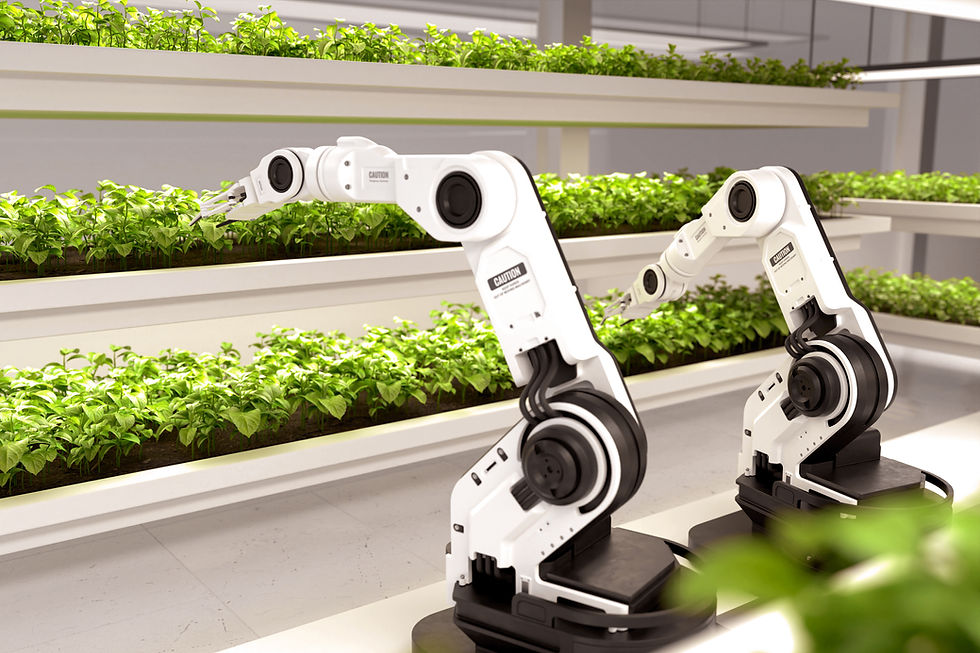Smart Food Production
- Shakiya Morris
- Feb 16, 2023
- 3 min read
The only type of "artificial" that should be near our food
Artificial Intelligence, AI, Food Production, Organic, Regenerative, Farming
Food production and sustainability have become critical issues in the global arena as the population continues to grow and the impact of climate change exposes stresses on the food supply chain. The current food system is not sustainable, and the need for an overhaul has never been more pressing. Artificial Intelligence (AI) has the potential to revolutionize food production and help strategize long-term solutions that balance the needs of the environment, farmers, and consumers.

What role can AI play?
AI can play a crucial role in helping to address these challenges. AI algorithms can analyze large amounts of data, such as weather patterns and soil conditions, to identify the best methods for producing food. This information can be used to develop strategies for sustainable agriculture, such as precision agriculture, which uses sensors and machines to optimize crop production while minimizing environmental impact.
Overcoming Challenges
A significant challenge in food production is ensuring an adequate supply of food to meet the demands of a growing population. AI can improve food production efficiency by optimizing crop yields and reducing waste. AI-powered precision agriculture enables farmers to make informed decisions on fertilization, pest control, and water management, leading to higher yields and lower costs.
Another major challenge in food production is the impact of climate change on agriculture. AI can help mitigate the effects of climate change by predicting weather patterns, extreme weather events, and soil moisture levels. Using AI, farmers can make informed decisions on what crops to grow, when to plant and harvest, and how to manage their resources, leading to a more sustainable food supply.

AI can also help reduce food waste by improving supply chain management and developing sustainable food systems. Analyze data from various sources, such as weather patterns, crop yields, consumer demand, and behavior. AI can predict which products will be in high demand and help ensure that the right amount of food is produced and distributed to meet demand. Using AI in innovative food production could provide a more efficient food supply chain, reducing waste and increasing sustainability while providing farmers with information that can be used to guide food production decisions and ensure that resources are being used more efficiently. In addition to these applications, Farmers can use AI to improve food safety and quality.
Overall, AI can revolutionize food production and help create sustainable future solutions. Using AI to analyze data and identify patterns, we can develop strategies that ensure long-term food security while protecting the environment. This is a critical step towards creating a more sustainable and equitable food system.
Creating Balance using AI

In conclusion, AI can be a game-changer in the food industry, aiding in the quest for sustainability. Its implementation can significantly improve efficiency, waste reduction, and minimization of climate change impacts. By adopting AI solutions, the industry can look forward to a future that caters to the needs of the environment, farmers, and consumers alike, promoting balance and harmony.
Moreover, the benefits of AI in food production are not limited to the above-stated points. It can also enhance food safety, optimize supply chains, and increase crop yields. Incorporating AI in the food industry can revolutionize the sector, making it more sustainable, safer, and more profitable for everyone involved. The limitless possibilities of AI in food production can lead to unprecedented improvements that can revolutionize the way we think about food.
I hope this was as exciting for you to learn as it was for me to share.
Like this story? Share or comment below.



Comments